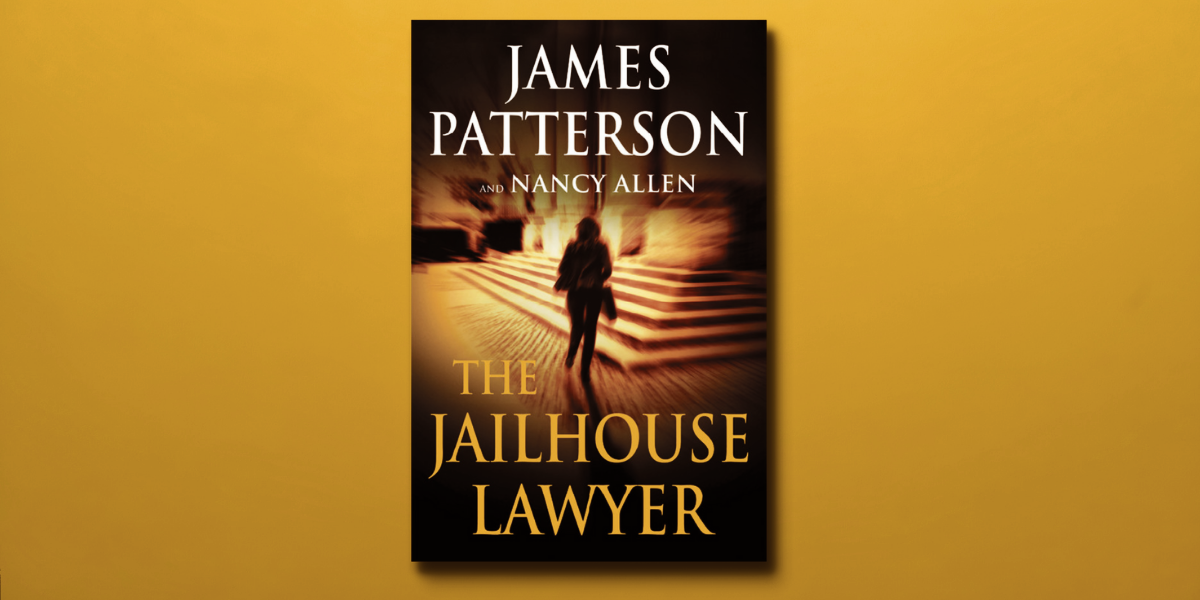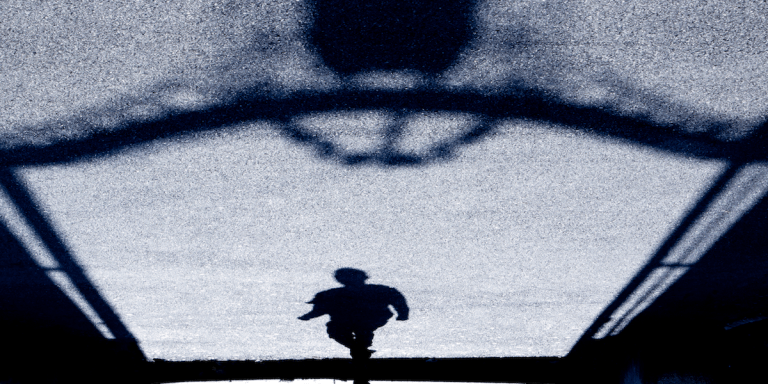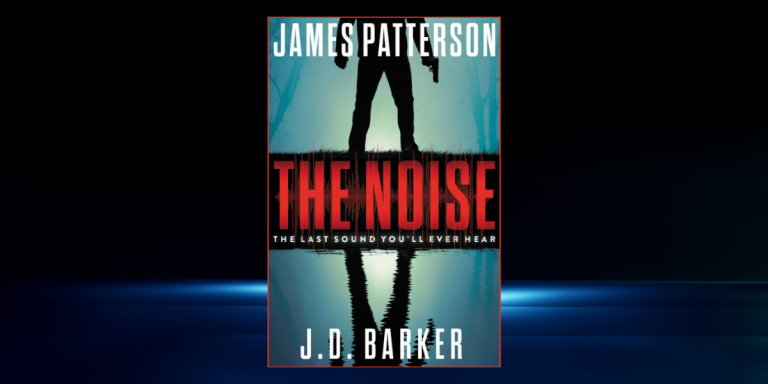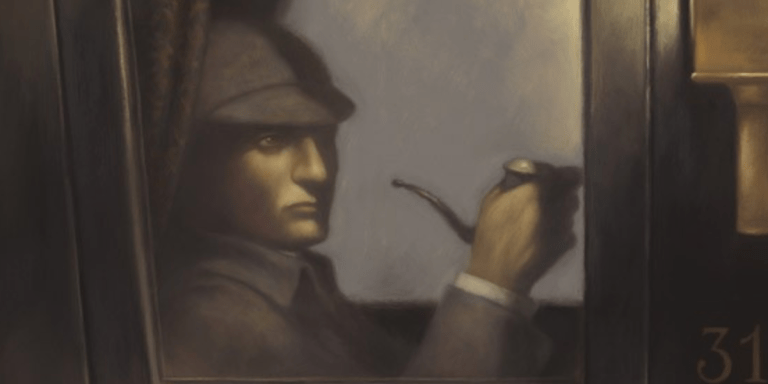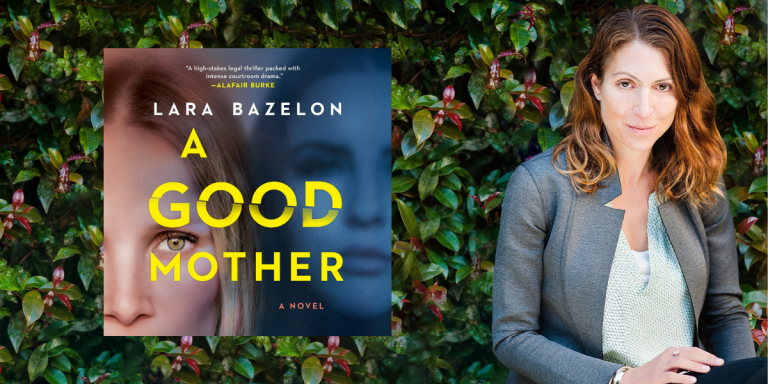Read the Excerpt: The Jailhouse Lawyer by James Patterson
PROLOGUE
I WASN’T PRESENT at the courthouse in Erva, Alabama, on that morning in June, when events unfolded that would suck me into the undertow of Douglas County. But I’ve talked to the people who were there. I’ve heard the story from all perspectives.
They all recalled that it was a bright day. The morning sun filled the courtroom with light, making the polished walnut benches and vintage millwork gleam.
The county inmates, garbed in orange scrubs, sat together in the front row of the courtroom gallery, bowing their heads to keep the sun out of their eyes. One young man covered his face with his hands.
The district attorney shifted in his chair to peer through the glass panes in the doors leading into the courtroom rotunda. His unlined face wore an anxious expression.
The court reporter’s heels tapped a nervous staccato beat on the tile floor. She turned and whispered to the bailiff, who stood beside the door to the chambers of Judge Wyatt Pickens.
“Well, where is he?” the court reporter said, just as the chamber door opened and Judge Pickens emerged.
The occupants of the courtroom jumped to their feet even before the bailiff’s voice called out, “All rise! The Circuit Court of Douglas County, Alabama, is now in session, Judge Wyatt Pickens presiding.”
The judge settled into his seat. He opened the laptop on the bench before briefly examining a stack of manila file folders. “You may be seated.”
As the courtroom rustled with the sounds of people shuffling back onto the benches, the judge looked out over the courtroom.
His eyes narrowed. “Where is the public defender?”
No one answered. The inmates in orange exchanged glances but maintained perfect silence. The district attorney tugged at his suit jacket and cleared his throat.
The noise caught the judge’s attention. “Mr. Carson? Where is the public defender?”
The young attorney stood and said, “I haven’t seen him this morning, Judge.”
Judge Pickens turned to the bailiff. “Harold?”
“Well, Judge, I’ve been here since about 7:30 this morning. Didn’t see him in the coffee shop or the lobby.”
Judge Pickens sighed. “This is our criminal docket day. We can’t proceed without him.” He turned to his clerk, a pretty woman hovering near the door to chambers.
“Betsy, if you would, please make a call over to the public defender’s office. See if you can raise him.”
“Yes, Your Honor.” She disappeared through the chambers door. The silence in the courtroom was broken by a female inmate.
“Judge? I seen him this week at the jail.” When the judge ignored her contribution, the woman slid back onto her bench.
Betsy reappeared. With an apologetic grimace, she said, “Judge, I just got the answering machine at his office.”
“Call his cell phone.” The judge’s voice was patient, but his face grew ruddy.
“I did, Judge. He didn’t pick up.” After a pause, she said, “I left a message.”
Judge Pickens drummed his fingers on the surface of the bench, the tempo increasing in speed and intensity. Then he stopped and slapped his palm on the wood veneer.
“Harold, you’re going to have to head over there and get him.” The bailiff bobbed his head. “Yes, sir, Your Honor.”
Outside the courtroom, Harold took the century-old courthouse’s marble stairs cautiously, gripping the brass handrail as he descended. He didn’t care to take a tumble. The bailiff wasn’t a young man, and his prosthetic foot made maneuvering the stairs particularly tricky.
He exited the courthouse and headed across the street to a two-story building that had been converted into the public de- fender’s office. The paint on the door designating Rob Ford public defender of the district was still shiny, as though it hadn’t yet had time to dry.
Harold turned the door handle, half expecting the entrance to be locked, but the door opened freely. The reception area was empty.
“Mr. Ford?”
There was no response. When the bailiff stepped inside, the door shut behind him. Harold made a face. It smelled like there was a sewer backup in here, and since the office was county property, Harold made a mental note to tell Judge Pickens so the judge could get the county commission on top of the problem.
As he walked across the reception room, Harold heard the crunch of broken glass under his shoe leather. He looked down and saw a shattered picture frame, facedown on the floor. Bending over with a grunt of effort, he picked up the frame and examined it. It was a family portrait: the public defender, his wife holding an infant, and two young children, a boy and a girl.
The bailiff lifted his head and called out again, “Rob? You in here?
The judge is waiting on you.”
He set the frame faceup against the wall, then walked a narrow hallway where a closed door bore a plastic nameplate, designating it as the office of Robert Ford, public defender. Harold rapped on the door with two knuckles.
“Rob? We’ve got a courtroom full of folks waiting across the street.” The smell of sewage was stronger outside the office door. The bailiff’s head bobbed as he swallowed. His hand shook when he
turned the doorknob.
When he pushed the door open, a low moan escaped his throat. Moving involuntarily, he stepped back into the hallway and turned his head away, burying his nose in his sleeve.
The public defender’s body hung by a leather strap tied to an overhead light fixture. On the floor, a wooden office chair lay on its side, near the puddle of excrement under the hanging man’s still body.
The bailiff stole another glance, to determine whether there was any chance the man was still alive. One look confirmed it: the gray face, bulging, sightless eyes, limp hands left no doubt.
He pulled the door shut and made his way out of the building with speed that defied his age. Once safely outside, he leaned against the rough stucco exterior of the building and drew deep breaths before pulling his phone from his pocket to call the judge.
As he scraped his shoes on the sidewalk to remove the glass particles, the bailiff muttered to himself: “Here we go again.”
CHAPTER 1
A HUNDRED MILES away from Douglas County, I hurried into the elevator of a 1970s office tower in downtown Birmingham, Alabama. I checked my reflection in the metal doors, fruitlessly at- tempting to finger-comb my wind-whipped red hair before the door opened onto the eleventh-floor offices of my workplace, Simon, Shelton, and Associates.
I dropped my briefcase inside my office. The color scheme was beige: paint, paper, carpet, upholstery. Even my wall hangings were strictly business: my license to practice, two diplomas from the University of Alabama, and my framed law review certificate. The last one hung directly across from my desk, where I could see it. Because I’d worked my butt off to obtain it.
The only treasures in my office were some framed pictures, which sat on my desktop, facing me. I had a smiling snapshot of my parents, taken a year before they were killed in a high- way collision when I was in college. All of the other frames held photos of my five-year-old son, Andy. The wallpaper on my computer screen displayed my favorite shot, taken this past March, the Saturday before his open-heart surgery, when we toured the Alabama Sports Hall of Fame — a proud Andy sitting beside a bronze football player, with the statue of Bear Bryant grinning behind him.
I quickly settled down to business, editing an appellate brief that one of the senior partners had handed off to me. It was meticulous work, and I took care to double-check the quotations and citations in the text. The law firm didn’t want to look sloppy in the eyes of the Alabama Court of Civil Appeals. If there was an error, I knew exactly which direction the shit would roll.
After an hour, I needed to get up and stretch, so I headed to the employees’ refrigerator for a bottle of water. On the way back, I stopped at the employee mailroom, where I saw that almost every mailbox held a single sheet of loose paper. I found mine — under FOSTER, MARTHA — and glanced at the heading as I carried it back to my office. A chill ran through me as I read.
To: All company employees
Re: Changes to company benefits plan
The memo contained only five brief paragraphs. But the message it conveyed was so jarring, I knocked over the water bottle as I read it. The water spilled onto a file folder I kept on the far corner of my desk: the growing stack of Andy’s medical bills, coordinated with explanations of my benefits.
My breath hitched as I read on, and phrases jumped out at me: only able to offer high-deductible policies
$6,000 individual deductible, $12,000 family maximum out-of-network providers will no longer be covered family medical leave no longer compensatory
The bottom line read:
Our goal is to mitigate costs associated with our self-insured program.
The memo was signed with a familiar scrawl: Sterling Shelton, the senior partner.
When I read it through to the end, the wave of fury that rolled over me made my vision gray out, blurring the words on the page. But I didn’t need to see the printed paragraphs to comprehend the target of the memo: me.
The new policy was clearly aimed at me and my five-year-old son. I launched out of my chair with the paper in my fist. The senior partner’s office was on the floor above mine, but I couldn’t wait for
the elevator. I took the stairs up two at a time.
Sterling’s office sat at the far end of the hallway. I flew down the beige carpet, pausing only to take a breath in front of his closed office door. But I flung the door open without bothering to knock. Shelton looked up, surprised.
Standing in the doorway, I held out the sheet of paper in my shaking hand.
“Got the memo,” I said.
CHAPTER 2
SHELTON NODDED AT a chair. “Have a seat, Martha.”
“No. Don’t think I will.” I walked up to his desk, determined to remain on my feet, though my knees trembled. “This is bullshit,” I said, partly crumpling the memo in my grip.
“Martha. Sit down.”
“I don’t want to sit down.”
He glanced away, giving a shrug. “Suit yourself.”
“So about this new policy,” I said. “Don’t think I’m fooled. You’re aiming this at me and my son, Andy.”
My voice had cracked when I’d spoken Andy’s name aloud. I cleared my throat, trying to hold it together.
During the pause, Sterling leaned back in his chair — making it easier to maintain eye contact, I assumed — and let loose the cannon. “Your son cost this law firm a fortune this year alone. It’s not
sustainable. I have a business to run.”
The tone of his voice was more chilling than the words he’d uttered. At that point, I slid into the chair I had refused to occupy, because my knees gave out.
“I’m entitled to my employee benefits. It’s one of the reasons I work so hard at my job. I need the health insurance. For Andy.”
His eyes shifted to the side, and when he spoke again, his voice was cool, as if we were discussing everyday business. “Our stop-loss is one hundred thousand dollars per insured. Why do you think you’re worth that?”
Affronted, I said, “I do great work for this firm, have for the past six years. I’m responsible for all of the legal research and writing — ”
He cut me off. “What about your absenteeism? You missed three successive weeks in March.”
The statement was so unfair, I saw red. “I worked from the hospital, worked from home.”
“This is a law office. You have to be a visible part of the team. The rest of the staff shouldn’t be expected to cover for your babysitting.”
At that, I nearly choked. “Babysitting? My son had open-heart surgery.”
Soberly, he nodded. I thought my words had made an impact until he said, “Yes. With the most expensive health-care provider in the region.”
Angry tears threatened to erupt; I forced them back through sheer will. “Andy has a rare congenital heart defect. There’s only one surgeon in Alabama qualified to perform the procedure he needed.”
Shelton cocked his head to one side. “I’m sure that’s a weighty problem.”
I received the message: it was my problem, not his. I got back to my feet, unable to stomach remaining in the room much longer. “Don’t expect me to apologize for my son’s heart condition. I’ve pulled my weight for six years, and you know it. No associate in this firm produces more billable hours.”
“That’s right. Six years ago, we couldn’t tell you were pregnant when you interviewed, and you sure as hell didn’t mention it. If I’d known, do you think we’d have hired you?”
I grasped the back of the chair. I knew Sterling Shelton was a cold, hard man, but he’d never revealed himself so baldly. “Oh, my God. What you’re saying — it’s illegal. This whole conversation — my pregnancy, my family medical leave — you’re flouting federal law. Title VII, and the FMLA.”
He scoffed. “You have a lot of nerve, Martha, storming in here with your pious attitude while I foot your medical bills. Where’s the boy’s father in all of this? Do you even know who the father is?”
By that point, I had headed for the door, but now I turned to face him. “You despicable sack of shit.”
He actually smiled when I said it, then gave a low whistle. “You’re showing your true colors today. I always liked your gumption, but don’t think you can aim it at me,” he said. “If you don’t like the new benefits policy, you know what you can do. Or we can pretend this conversation never happened. But if you ever talk to me like this again, I’ll have you escorted off the premises.”
I wheeled around, pulling myself up straight. “I’d like to see you try.”
Then I escaped, determined to have the last word.
CHAPTER 3
THAT NIGHT, I sat cross-legged on the sofa in my cracker-box apartment in Birmingham, folding our clean clothes. My hands worked on autopilot as my eyes strayed to the crumpled sheet of paper that lay on the coffee table, near the laundry basket.
The five paragraphs printed on the page had turned my world upside down. That and the ugly scene that had followed. I’d retreated to my office afterward and shut myself inside, trying to breathe around the angry ball lodged in my chest. Though I wanted to flee, I couldn’t simply walk out; I couldn’t jump without a place to land. Because of Andy.
I needed to devise a getaway plan — immediately.
A nudge at my shoulder interrupted my dark thoughts.
Andy’s arm, swathed in a layer of toilet paper, reached over the back of the couch. He held a spoon — a sticky one that should have been in the sink with the dirty dishes. In a deeply solemn voice, he said, “It’s time to get the brain out.”
Twisting around on the sofa, I saw that Andy’s upper body was draped in an untidy wrapping of toilet paper. His mummification was already unraveling, leaving a mess on the floor behind him.
“Andy. We talked about this.”
He used the sticky spoon to tap a jar of peanut butter clutched to his chest. “We will preserve it in this jar. You’ll have to pull my brain out through my nose.”
That made me snicker. Forgetting the crumpled memo for a moment, I scrambled off the couch and found the end of his paper trail. As I tried to wind it around my hand, I said, “Now, what did we agree about this mummy thing? You can’t waste toilet paper like this. Andy? You hear me, buddy?”
“My name is not Andy. I am King Tut.”
A few months ago I’d taken him to an Egyptology exhibit in Atlanta. When the mummies quickly seized his imagination, I was delighted. But that was before he began raiding the toilet paper on a regular basis. He unwound so many rolls, I’d recently had to switch from Charmin to the one-ply store brand: a rough exchange.
Dropping the spoon and jar onto the coffee table, he bent over the laundry basket and commenced digging through the clean clothes.
“Are you looking for your Spider-Man pj’s? It is almost bedtime,” I said.
He pulled a shirt from the basket. “I don’t want to put on pj’s. I’m wearing this to bed.”
It was a red Kansas City Chiefs jersey. As he pulled it over his head, Andy said, “It’s my Pat Mahomes shirt. I want to sleep in it.”
I took a moment to straighten the glasses that sat crooked on his nose. “Suit yourself. Time to head to bed.”
Behind the lenses of his glasses, two blue smudges made shadows under his eyes. “When do I get to be on a football team?”
“Oh, I don’t know. Maybe when you’re fifteen.”
My lighthearted tone was a ruse to cover the lie. The cardiologist had told me that Andy could never play contact sports. But I wasn’t ready to force my five-year-old to face hard truths, not yet.
His bedtime ritual took a while. After he brushed his teeth, we had to take his blood pressure, then he wanted a story, and a rehash of Goodnight Moon wouldn’t suffice. Forty-five minutes later, I was back on the couch with my laptop open, trawling for job openings.
It was a frustrating quest. Hours passed as, hunched over my keyboard, I searched for prospects. I paused to read a new listing for an associate position in Birmingham, but when I reviewed the job benefits, I exited the page with a huff of disappointment.
When I struck out in Birmingham, I flipped through postings in other judicial districts. I’d hoped to avoid a move to a different community, but I needed to see what was out there. Staring at the screen, I kept up the hunt with dogged determination. When my head began to throb, I almost shut down the computer. But just before I did, a brand-new posting caught my eye: a vacancy announcement in Douglas County, Alabama, for the office of district public defender.
I clicked on it, curious. Alabama didn’t have a statewide public defender system. Only the big communities, like Birmingham and Montgomery, hired full-time counsel to represent indigent defendants. Smaller places still used the old judicial appointment system, whereby local judges parceled out cases to local attorneys.
Douglas County wasn’t a population center in Alabama, like Birmingham. But the salary posted on the announcement was nearly as high as what junior partners received at Simon, Shelton, and Associates. I sat back, thinking hard.
Serving as a public defender wasn’t a cushy occupation. It could be backbreaking work, with caseloads heavier than one attorney could competently handle.
And it would involve a move, venturing into the unknown. I needed to be sure it was worth it. So I scrolled down the page, and when I saw the benefits package they offered, I squawked out loud.
Covering my mouth, I double-checked the website: there it was, in black and white. Unbelievable. The public defender’s benefits were identical to those of the district attorney. The county offered a golden government package, one that couldn’t be arbitrarily snatched away just because my son required medical treatment.
I had an inspired thought: there might be a way to determine the defender’s load in Douglas County. Lots of communities posted mug shots of inmates in the local jail.
I opened a new page on the laptop and searched for the current inhabitants of the Douglas County Jail. When they first popped up, it looked like a collection of the usual suspects. Drug offenses, petty crimes, driving under the influence, burglary, one violent felony. I had almost reached the bottom of the last page when I spied a face I hadn’t seen in years.
Jay Bradshaw, a law school classmate from the University of Alabama, stared shell-shocked at the camera. The website said he was incarcerated for “failure to appear.” I shook my head, wondering how it was even possible, but the description underneath his picture confirmed it with his height, weight, and date of birth, along with his full name: Jeremiah Lawford Bradshaw.
What is Alabama’s Student Most Likely to Succeed doing in jail?
I closed the mug-shot tab and accessed the Douglas County application link, thinking hard.
I decided to go for it. I filled out the application, my hands flying across the keyboard.
After I hit Send, a whisper in the back of my head nagged at me: maybe this was impulsive, too hasty. I was a thirty-one-year-old single mother to a young son with a heart condition, and we’d already had a tough year. Was it foolish to pull up stakes? I had no family support system to lean on, and limited experience in criminal defense. But looking around my small living room, with its dingy carpet and drooping plastic blinds, I bucked up. Andy and I were due for a fresh start.
“Pick me. I need this job,” I whispered to the picture of the Douglas County seal on the computer screen. With a glance at Andy’s bedroom door, I amended the plea: “We need this job.”
CHAPTER 4
DOUGLAS COUNTY DETECTIVE Patrick Stanley sorted through an open box of donuts that sat on the late public defender’s desk. He selected an iced long john and took a bite as he reclined in the dead attorney’s chair and lifted his feet to the desktop.
“Sure you don’t want one of these, Clark?” He gave the box a push across the desk, in the direction of a uniformed deputy.
Deputy Clark, sprawled out on the brown vinyl sofa in the corner of the office, shook his head in response to the offer. The deputy tapped on his cell phone with both thumbs. After a moment, he looked up. “Pat, how much longer you reckon we need to hang around here? My partner’s asking.”
Detective Stanley licked icing from his thumb and forefinger. “Gotta stay a half hour, anyhow. We can leave in thirty minutes, something like that.”
Frowning, the deputy returned his attention to the cell phone and commenced tapping on the screen again. The men sat in com- panionable silence as the detective finished off the pastry and wiped his hands with a paper napkin, then reexamined the contents of the donut box.
The deputy breathed out a sigh as he checked the time on his phone. “Pat, you think you got enough for us to make a report?”
“Oh, hell yeah.” Detective Stanley glanced up at the overhead light fixture. “Just don’t forget to collect that too. Bag and tag it, Clark.”
Both men focused on the leather belt that dangled from the light fixture. The deputy cleared his throat before asking, “Pat, you really think that lawyer killed himself ?”
“I think there’s room for doubt. It’s possible he had some help.” With a shrug, the detective added, “On the other hand, that guy didn’t have much backbone. One of those nervous types. Never know what a guy like that will do.”
The deputy stood up with a grunt and unfolded a stepladder to retrieve the belt.
Detective Stanley looked back into the donut box and pulled out a chocolate-iced cinnamon roll. He chewed as he watched Deputy Clark, saying, “Don’t forget to put on some gloves before you yank that strap off of there.” Detective Stanley’s head gave an appreciative shake as he added, “Clark, these donuts are mighty fine. You sick or something?”
The deputy glanced around the room. “Tell you the truth, Pat, it’s still a little ripe in here. Puts me off my feed.”
“You think?” The detective raised his nose and sniffed. “Yeah. Is it my imagination?”
“Maybe not.” The detective dropped the cinnamon roll back into the box, as if it had suddenly lost its appeal. “Probably ought to get the janitorial folks back over here. I hear they’ve got a replacement coming.”
“A new public defender already?”
“Next week, I heard. It’s a woman this time.” The men exchanged a look, and the detective chuckled.
“Is she married?”
“No husband in the picture. But she’s got her a little old kid.” The detective shut the lid on the donut box and said, “Let’s wrap this up and get on out. I believe you’re right. It stinks in here.”
CHAPTER 5
EVENTS FLEW BY fast. The Douglas County Commission offered me the job on the spot during my Skype interview, if I could get down there ASAP. I accepted and started packing. So I didn’t have time for nerves until Andy and I pulled into the city limits of Erva, Alabama, on a Monday afternoon in June, just one week after I had taken the job. That’s when the anxiety hit. My hands grew sweaty on the steering wheel at a four-way stop, and I started to whistle under my breath.
“Mom. You’re doing that funny whistle.”
I glanced at the rearview mirror. Andy was twisted in his car seat, looking out the window.
“I see a lot of rich houses.”
He was spot-on. Erva looked prosperous, with a neighborhood of newly constructed buildings right off the highway.
My voice held a warning note. “Our house is closer to downtown, in an older neighborhood.”
But driving to the center of town, I gained confidence. The trees lining the streets made a green canopy as I followed the directions to our rental house. On the sidewalks, kids maneuvered bikes and played in front yards like scenes from 1960s television series. When I pulled up to our address, and the robotic voice on my phone’s GPS announced, “You have arrived at your destination,” I had to check twice to be sure it wasn’t mistaken.
The rental house was a vintage Craftsman bungalow with brown- brick piers, peeking from behind a huge magnolia tree in glorious bloom. It looked like an ad out of Southern Living magazine rather than a humble rental property.
“Mom! There’s a fence!”
I craned my neck. Just as Andy had said, a chain-link fence lined the backyard.
“You always say we can’t have a dog because we don’t have a yard with a fence, but now we do, so we can get one.”
I groaned. It was an old argument, replayed many times. Follow- ing behind as Andy ran up the front walk, I breathed in the scent of magnolia blossoms. On impulse, I dodged into the yard and broke a bloom off the tree to place it in a bowl of water in the house.
Andy waited impatiently for me to reach the front porch. As the landlord’s email had instructed, a key had been left for me on top of the window ledge. Glancing overhead, my face broke into a smile.
The beadboard on the underside of the porch roof had a coat of sky-blue paint. Our new home in Erva was full of surprises. Lovely surprises.
Until we walked into the house.
The landlord had informed me it was partially furnished; it had been home to his grandmother, who had recently passed. I had welcomed the news, because the scanty possessions from our tiny apartment couldn’t outfit a house. But as I glanced around the living room, I realized I should’ve asked him to be more specific about the meaning of “partially furnished.”
It was wall-to-wall knickknacks in there.
A curio cabinet loaded with odd vases, figurines, and planters sat beside a faded pink settee. Dusty lady heads, from the 1950s, with closed eyes and pursed lips. A grimy plastic violet planted behind a pair of porcelain praying hands.
“What’s that?”
Andy pointed at a Shirley Temple doll that sat on the fireplace mantel. Stepping up to inspect it, I grimaced. Time had shattered the doll’s glass eyes and lined her face with a network of cracks.
“It’s scary,” he said.
“It’s fine,” I lied, turning the doll’s head, so Shirley wouldn’t give Andy nightmares.
Hell, she might give me nightmares.
So maybe it wasn’t quite a renter’s paradise, but it looked solid and well maintained. It had everything we needed: two bedrooms, one and a half baths, and a small kitchen that led to a fenced back- yard, where an old tire hung from the branches of an elm tree.
Andy’s footsteps echoed across the hardwood floors. Setting the magnolia blossom by the sink, I called, “Honey, stay inside the house. I’m going to start unloading.”
On the street, as I struggled to open the U-Haul cargo trailer, a car pulled up behind me. I ignored it, my hands full trying to maneuver my first load onto a dolly. But when two women emerged and approached me on the sidewalk, I gave them a friendly nod as I jerked the dolly onto my front walk.
I expected them to walk on by, but they followed me. The younger one, a pretty woman in her forties, said, “Miss Foster? Martha?”
Surprised, I paused. “Can I help you?”
She smiled. She and her friend were dressed to the nines in “Junior League casual.” She’d obviously taken pains with her coiffure. Big hair, I thought. No judgment. Just saying.
Her voice was as bright as a new penny. “I’m Sydney Hancock, this is Diane. We’re the welcome wagon.”
CHAPTER 6
“THE WELCOME WAGON,” I parroted. Because I sure couldn’t say what was rocketing through my head.
You’ve got to be kidding.
Sydney said, “Is this a good time, Martha? Diane said we might be too early. But our kids are at swim team right now, so I thought we should head on over here. Believe me, Martha, you don’t want our kids running all over your house. Especially mine. Right, Diane?” She sent her friend a wink and gave a little laugh, revealing teeth that were a startling shade of ultra-white.
Mystified, I said, “We just got here. We’re not in great shape for company yet, I’m afraid.”
Sydney waved a hand toward her SUV, making the bangles around her wrist jangle. She said, “It’s just some things to help you get settled. We have a box in the car. Can we bring it in?” She popped open the back door of her SUV and took out a big cardboard box. “Diane, get over here. You can bring the pie inside.”
The other woman finally spoke. “It’s gifts from local businesses.” She was smiling, too.
Sydney made her way up the front walk. “This is your official welcome to Erva. We’re so glad you’re here.”
Deserting my loaded dolly, I followed her. Diane was at my elbow, toting a peach pie. The crust actually looked homemade.
Sydney stepped over the threshold and deposited the box on the floor. “We don’t want to be a bother. We’ll let you get settled in. I know they’re looking forward to getting you to work at the courthouse. I don’t know how you do it, but somebody’s got to, right?”
Her nonstop chatter made my head spin. “Beg pardon? What’s that?”
She grimaced. “Represent those criminals. Yuck. But somebody’s got to. That’s what my husband says.”
Diane handed me the pie plate. “Judge Pickens says he hopes that this time we’ve got one who’ll stick around.”
The statement puzzled me. “The last public defender didn’t stay in town long?”
Diane’s smile faltered. She looked to Sydney.
Moving briskly, Sydney pushed the front screen open. “No. Not long. Diane, we better go pick up the kids.”
In a flash, she jogged down the steps and onto the walk. As Diane departed through the door, I followed, still carrying the pie.
“Diane? Why didn’t the last defender stay longer?”
Diane halted on the front steps, her brows making a crease above the bridge of her nose. A look of uncertainty flashed across her face. She said, “I hate to be the one to break it to you, but you’ll hear it soon enough. Truth is, Rob killed himself.”
I almost dropped the pie. As I fumbled to regain my grasp, Diane made her escape. Hurrying toward Sydney’s car, she spoke over her shoulder. “So nice to have a fresh face in town. Welcome to Erva!”
Order The Book
In picture-perfect Erva, Alabama, the most serious crimes are misdemeanors. Speeding tickets. Shoplifting. Contempt of court.
Then why is the jail so crowded? And why are so few prisoners released? There’s only one place to learn the truth behind these incriminating secrets.
Sometimes the best education a lawyer can get is a short stretch of hard time.
By clicking 'Sign Up,' I acknowledge that I have read and agree to Hachette Book Group’s Privacy Policy and Terms of Use
What to Read Next
